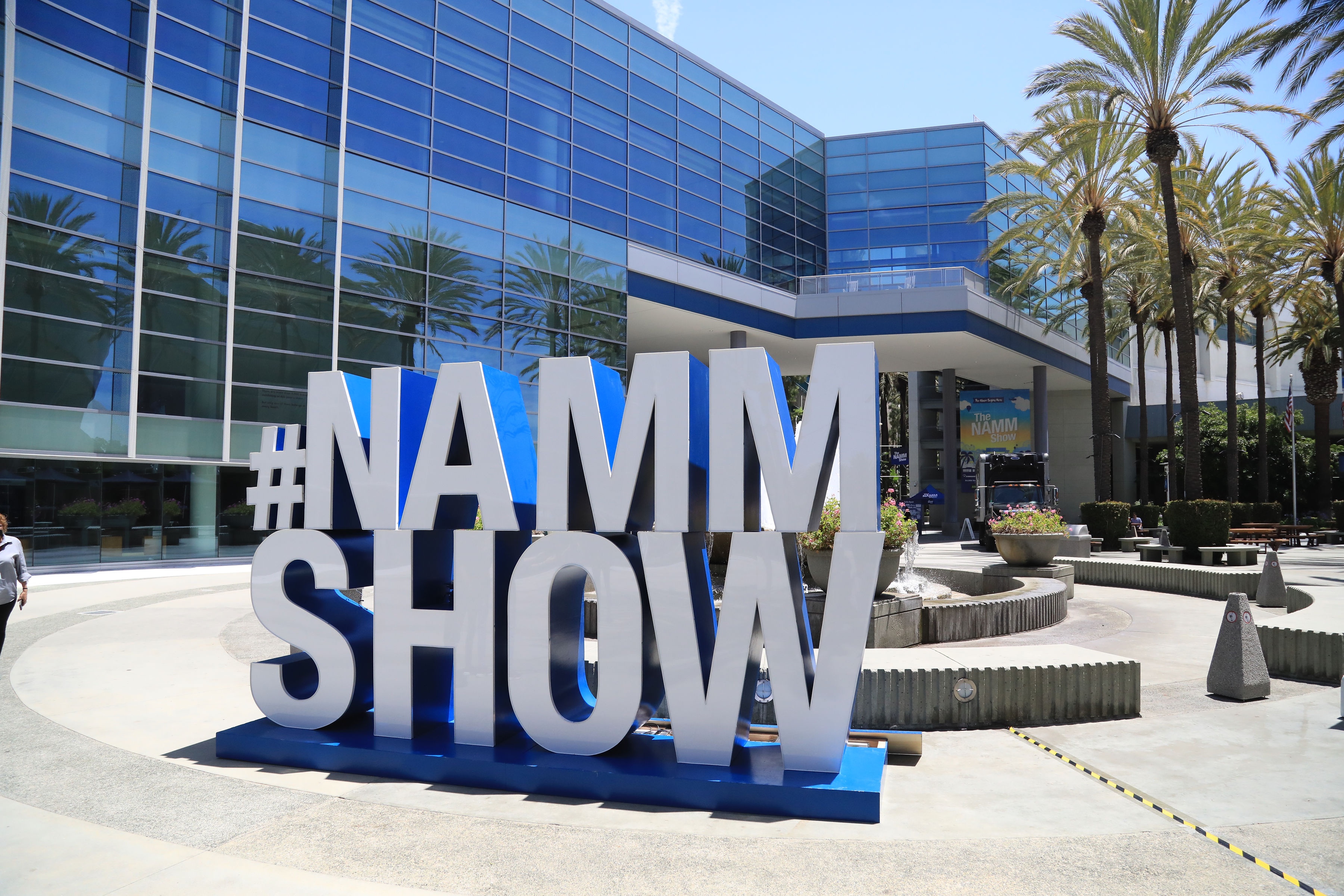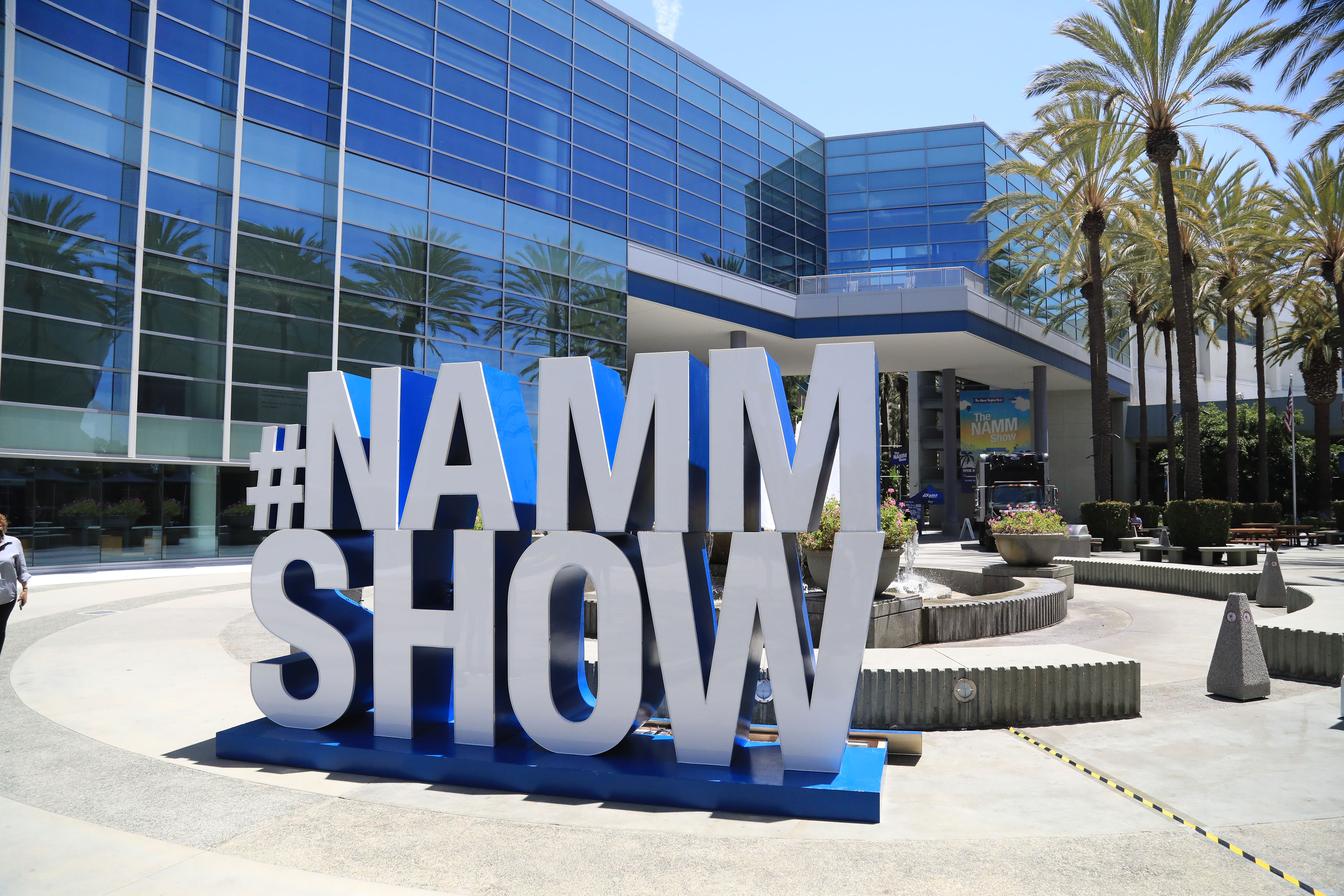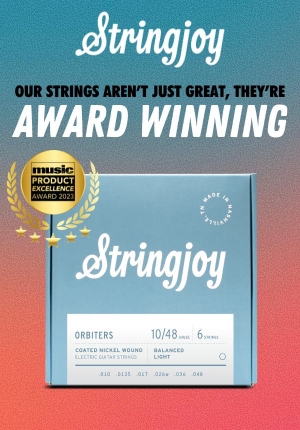
Rupps Drums' Alex Simpson
Back in August 2020, Music Inc. dug deep into key online tools retailers were leaning on to help them through the thick of the COVID-19 lockdowns. As restrictions are now lifting, and in-store shopping begins to reach normal levels again, the web tools, technology and practices that retailers adopted during the pandemic are continuing to drive customers into their stores and onto their websites.
In some retailers’ cases, the increase in online shopping due to the bans on in-store shopping have led to a wider customer base outside of their normal geographical footprint. Additionally, the surge in the number of people learning to play an instrument during the pandemic has also led to more potential customers. Justin Sims, general manager of Sims Music in Columbia, South Carolina, said he believes now is the time for music retailers to up their online sales game.
“I think there are more musicians in the world right now than ever before, and we have to have the correct technology behind us to help us capitalize on that,” Sims explained. “Music stores in general are typically behind the times and not too tech-savvy, but there’s a new wave of owners and employees who are doing things right. I know our business increased during COVID-19, and I’m scared to think where we would be if we didn’t have our product integration set up. Having our inventory integrated made it possible for us to have zero staff at the store during the lockdown, but be able to still know that everything was integrated and selling correctly. That was amazing.”
Syncing & Reverbing
That seamlessness was partly due to Sims own ingenuity. In 2018, he and a friend who ran an online antique furniture store created Sync2Sell, an online solution that connects a retailer’s Lightspeed point of sale system to their Reverb.com account.
“More retailers who are using Reverb are using Lightspeed because Reverb ended Reverb Sites and created a promotional package to bundle Lightspeed and Sync2Sell at a great rate,” Sims explained. “With Sync2Sell, we automate everything. We take your inventory and photos, and we post them to Reverb. When someone checks out on Reverb, it’s automatically rung up. It basically lets music stores be open 24 hours.”
Like many retailers, when COVID-19 lockdowns hit, Sims and his team were sent scrambling to post their entire inventory to Reverb.
“Overall, using Reverb was crucial during the pandemic,” Sims said. “Our Reverb sales tripled. That kept 15 people on staff while we were closed and brought them all back when we re-opened again.”
And Sims was not alone.
Manchester Music Mill in Manchester, New Hampshire, reported seeing a 66% increase in its Reverb sales in 2020 over 2019. The store’s general manager, Craig Peterson, said increasing their use of a few of the tools Reverb offers sellers helped immensely.
“We utilized the Reverb Bump [which boosted our listings] during the pandemic,” Peterson said. “We also did the Reverb Takeover Days which were huge for us.”
Justin Hendricks of Parkway Music in Clifton Park, New York, has been working with his store’s Reverb account manager to identify SKUs that are selling well to make sure his store is stocking correctly.
“He’s been helpful giving us insight into the data,” Hendricks said. “Reverb reflects the industry as a whole as it’s now the norm for musical instrument shopping. That gives us a powerful data set as far as what is a best seller. For instance, [at one point] drums and pro-audio were lacking, and it’s great to get some insights into that and make sure we are stocking the right things.”
According to Mark Anzelc, Reverb’s seller engagement senior manager, the platform worked closely with dealers during the pandemic to make sure that anyone looking for a musical instrument online found Reverb’s sellers. New tools such as its Combine and Save shipping — which debuted ahead of the 2020 holiday season — let sellers offer discounted or free shipping to buyers who purchased multiple items.
“Already, we’re seeing that allowing buyers to use Combine and Save encourages buyers to purchase more items from sellers,” Anzelc said, adding that the Reverb team has also focused on finding new ways to promote sellers’ inventory, as well as invest in digital advertising to promote sellers and help make their gear more findable on Google. “These are both things that might be difficult for indie retailers to manage on their own, but our team is well positioned to do so on their behalf. We’ve also been partnering with brands to promote their dealers. As an example, we partnered with Fender earlier this year to promote the launch of the American Acoustasonic Jazzmaster and drive sales to their dealer network on Reverb.”
For dealers looking to increase their Reverb revenue, Anzelc suggested listing everything they have in their store online.
“Reverb has long been known as the website for selling used and unique gear, but over the past year in particular, we’re seeing more and more consumers buy new gear on the site,” Anzelc said.
It Goes Down in the Chat
Online sales aside, customer service remains key. And during a time when retailers couldn’t interface with their customers in-store due to the pandemic, webchat and texting software were critical solutions.
Instrumental Music Center in Tucson, Arizona, implemented Podium, a webchat service that not only integrates into a retailer’s website, but also lets customers text the store’s landline.
“It’s been great for us because we were seeing more need for convenience and accessibility,” said Lucille Petty, IMC’s support specialist. “It’s also convenient because if we have a conversation with a customer about a repair, for instance, we can just text the convo over to our repair tech.”
Manchester Music Mill also transitioned to using Podium during the pandemic.
“I can talk to a customer via text on the computer and all the channels integrate into there, so I’m not losing messages. Also, you can request a payment through text, which is huge,” said Manchester Music Mills’ Peterson. “We make sure to respond at a high level — either myself, another dedicated user or the store owner use it in real-time. For us, the response time is super important for customer and sale retention. If a customer is looking for an answer, they want communication on the spot.”
Rupp’s Drums in Denver instituted Clientbook, a similar webchat solution, during the pandemic. This system allows the drum shop to text customers directly, send them links, photos and customized product collections.
“In an effort to offer our web customers the same brand of personalized service and expertise that we offer our local customers, the chat widget displays a photo of a Rupp’s Drums staff member with the simple prompt, ‘Chat with a drummer,’” said Alex Simpson, Rupp’s Drums owner. “One of the main benefits of using Clientbook is that our customers can continue to communicate with our staff members via text message, making it easier for a first-time customer to become a repeat customer.”
Sims Music also utilizes Clientbook, and general manager Justin Sims said it allows their store to “sell instruments at all hours of the night.”
“I think when people message webchat solutions, and they either expect a bot to answer or no one at all,” Sims said. “But if someone messages our website at 11 p.m., I can answer and sell a guitar by midnight.”
If there was a silver lining from the pandemic lockdowns, adopting a live webchat and texting solution may have been it.
“We originally started using Podium because of COVID, but we are going to continue to keep using it now,” Peterson said. “People want to text, and Podium does the deal.”
Universal Integration
Curbside pickup wasn’t the only new feature retailers implemented due to the pandemic. Before 2020, IMC’s website served as more of a business card for the store, with no e-commerce built in.
“Our shoppers have always been very focused on shopping in-store,” Petty explained.
But as lockdowns took hold and sanitization became front of mind for many students and players, IMC began integrating what Petty called “essential products.”
“We started off by listing sanitizers and instrument cleaning kits,” she said. “And then we started upping the number of products we had from there.”
In mid-June 2021, IMC launched a new website to coincide with the store’s re-brand and former co-owner Leslie Stirm’s transition to sole owner.
“We use AIM POS software, and we’ve talked about integrating all products,” Petty said. “We wanted to start small to see if there was a demand there.”
Redesigning the site, Petty said, brought into question how the store was being viewed online, something that helped the team learn where to spend ad dollars on social media.
“We’ve also focused on organic growth instead of paid advertising on social, and learned the more we follow local musicians on Instagram, the more likely they’ll follow us back,” she said. “Regardless if follower count matters or not, we’re bridging the gap between us — the sellers — and the people playing the instruments we sell. We’ve also noticed that our Facebook page is mostly made up of the parents of our students, where our Instagram is made up of more musicians.”
Rupp’s Drums also debuted a new website during the coronavirus pandemic, opting to build it out using POS system Lightspeed.
“I was also able to integrate that new website with my third-party selling platforms, like eBay and Reverb, through a newer integration software. It’s made my life so much easier here at the shop because every item, order and customer is automatically synced with my POS, and I’m not duplicating my work over and over again,” Simpson explained, adding that he has been using Lightspeed for several years but began utilizing its e-commerce features more recently.
“The biggest benefit to using Lightspeed for e-commerce is that everything is automatically integrated between the e-commerce and retail platforms,” he continued. “Many dealers are still managing store inventory and web listings separately but using Lightspeed helps us avoid duplicating our efforts. If we sell a product on our website, the inventory, customer information and transaction data are automatically synced with our retail POS. We recently took this concept a step further and began working with Sync2Sell in order to integrate Lightspeed with the rest of our third-party e-commerce platforms. Sync2Sell allows us to manage listings across several platforms without redundancy, and it’s saved a great deal of time and money over the last two years.”
Simpson said he and his team were already moving in the direction of universal integration before COVID-19 hit, but the pandemic influenced his decision to build a new website through Lightspeed.
“If we had chosen another platform, we would likely be spending more time handling orders and managing listings than we do right now,” he explained. “E-commerce became even more crucial in 2020, and the decision to utilize both Lightspeed Retail and Lightspeed E-commerce simultaneously made a world of difference.”
At Manchester Music Mill, an influx in online orders and shoppers from outside the area lead the full-line dealer to implement e-commerce fulfillment solution ShipStation, which store manager Craig Peterson said has made managing the store’s shipping workflow much easier.
“If we do a deal through text, like Podium, this creates a workflow for my shipper, and they can see where it needs to go or when it needs to go out if the buyer doesn’t want it shipped until a certain date,” he said. “We manage the shipper’s workflow, so we all have to be on top of it, and using a shipping software has made it easier. It centralizes [all our selling channels] for us — Reverb, eBay and our website.”
The New Wave of MI
With an influx in consumers shopping online and a rise in music makers, Justin Hendricks of Parkway Music said 2020 was a huge year for MI as a whole.
“Our store owner maybe said it best when he said we haven’t seen anything like this last year for musical instruments since the Beatles,” Hendricks said. “Right before the pandemic, we had just started taking e-commerce more seriously. When COVID-19 hit, it was mass effort to get everything online, and we saw an extreme increase in online revenue.”
Reverb’s Mark Anzelc emphasized the importance of a positive online experience for MI shoppers.
“I recently read that anyone who’s had a positive experience with an online retailer is bound to become a repeat customer, and I agree,” he said. “Now that players of all levels have experienced the benefits of buying musical instruments online, I believe they’ll continue to do so.” MI











